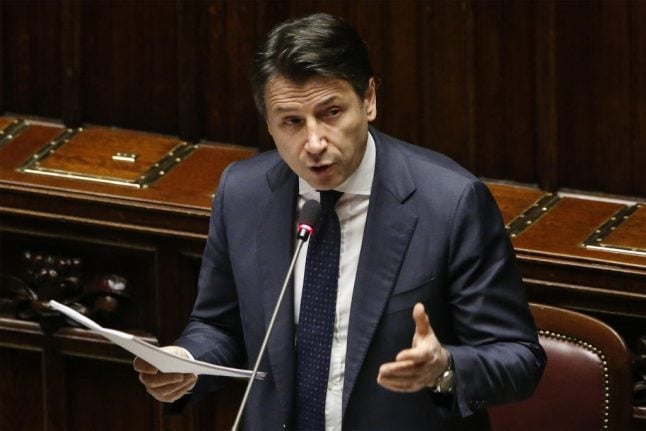Italy, which has declared more coronavirus deaths than any other European country, enforced under national quarantine on March 10th, with some badly-hit northern regions imposing shutdowns even earlier.
The lockdown period, which has since been extended twice, is due to expire on May 3.
READ ALSO: When will it be possible to travel to Italy again?
Prime Minister Giuseppe Conte is caught between trying to avoid a renewed spike in infections while avoiding additional damage to the economy.
The virus has so far killed over 24,000 people in Italy.
“I would like to be able to say, let's open everything. Right away,” Conte wrote on Facebook. “But such a decision would be irresponsible.”

Photo: AFP
“It would make the contagion curve rise uncontrollably and would jeopardise all the efforts that we've made until now.”
He laid out the difficulties of the so-called 'Phase 2' in reopening the economy, saying a plan would be laid out “before the end of this week.
“A reasonable expectation is that we will apply it from May 4.”
“We have to reopen on the basis of policy that takes into consideration all the details and cuts across all the data. A serious policy, scientific,” Conte wrote.
In an example, he cited how, in allowing businesses to reopen, officials needed to consider how workers would get to and from work without causing crowds and triggering a new wave of contagion.
Conte said the plan would be national but would take into account regional differences.
READ ALSO:
- Which Italian regions will be first to beat the coronavirus?
- Why the coronavirus quarantine rules aren't always the same around Italy
- Here are the businesses that can start reopening in Italy
Some in southern Italy have complained about the fact that they are subject to the same lockdown conditions as the north, despite far fewer coronavirus cases and lower population density in many areas.
But officials fear that lifting restrictions could trigger an outbreak in the south, placing dangerous strain on underfunded hospitals.
But Conte's government is facing growing pressure from business and opposition politicians who say Italy must now get back to work.
READ ALSO: Lombardy's governor pushes for Italian businesses to reopen
Conte earlier this month charged a task force made up of economists, lawyers, sociologists and other experts with studying the post-lockdown measures needed to restart the economy while protecting worker health.
The prime minister has so far struck a cautious note when asked about reopening, repeatedly warning that expert medical advice must be followed.



 Please whitelist us to continue reading.
Please whitelist us to continue reading.
Member comments